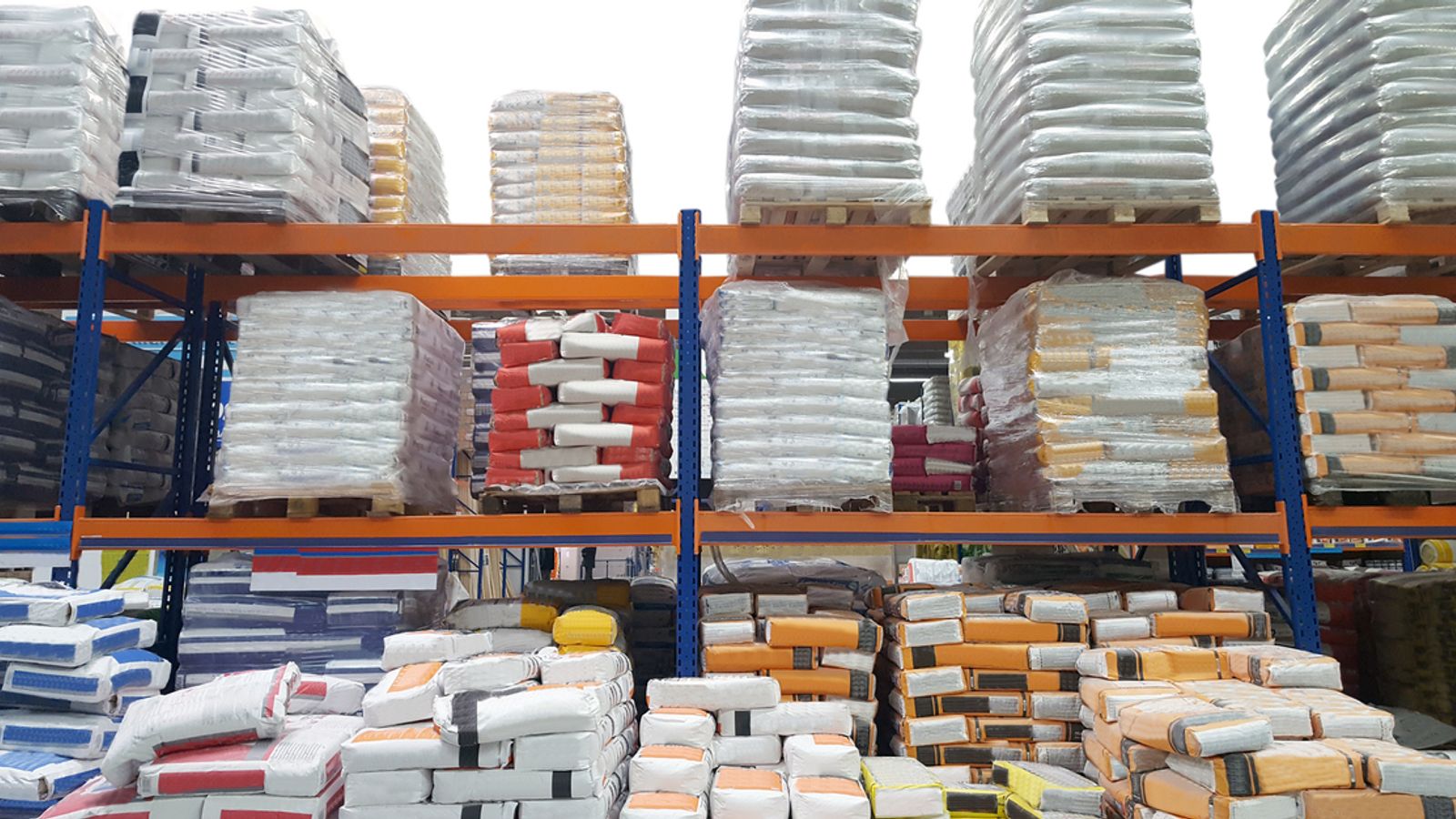Riteweld Engineering constructs the skeletons of the modern economy.
At its works in Banbury it takes steel bars and cuts, welds and drills them to create the frames of warehouses, shops and restaurants.
It buys steel by the tonne but in recent weeks has seen unprecedented volatility in the price of raw materials, caused by the global spike in natural gas prices. It means a quote provided at breakfast being outdated by teatime.
Please use Chrome browser for a more accessible video player
“We could pick up the phone to a supplier in the morning and by the afternoon we could have experienced a £20-a-tonne increase in cost,” says director Ben Young.
He says quotes provided by suppliers are now only good for a day, and contracts agreed months ago can now only be completed at a loss.
“When I quote for a client I’m saying I can only hold it for a couple of days because my supplier won’t be holding their cost for any more than a number of hours, and when I go back to place my order, before I’ve even processed it through the design office, the price has increased again.”
The result is a slowdown in business that may get worse.
Big Ideas Live: Sky News launches series of events exploring economic challenges – topics, speakers and timings
Business Secretary Kwasi Kwarteng requests Treasury support for industries hit by energy price hike
Energy crisis: What options does the government have for helping industry – and what does industry want?
He added: “We are now finding a little bit of uncertainty, clients are saying maybe I’ll hold off and leave that building until the new year. At the moment we’re okay, but for us it’s that uncertainty that’s the problem.”
Please use Chrome browser for a more accessible video player
Businesses like Riteweld are suffering because of the challenge further up the supply chain, where energy intensive industries like steel, paper and chemical production and ceramics have been rendered unviable by energy costs.
Natural gas prices are around six times higher than a year ago, putting a premium on electricity during an autumn when calm weather has reduced renewable generation.
And unlike domestic customers who are partially protected from price rises by a cap that’s renewed twice a year, there is no limit for industrial use.
Leaders from energy intensive industries spent Friday and much of Monday in talks with ministers and officials, warning that plant shutdowns and even permanent closures are a very real prospect.
Government sources say ministers believe the warnings are stark and credible, and not simply special pleading on behalf of businesses under pressure. The key calculation is that those asking were competitive self-sufficient businesses until a month ago, when the price spike skewered their financial model.
Please use Chrome browser for a more accessible video player
Quite what to do about it is a more complex and costly question, which may explain the embarrassing and remarkable weekend spat between Kwasi Kwarteng and Rishi Sunak.
In short, a Treasury source accused the business secretary of lying when he said talks were ongoing over how to assist industry. A day later, they are, with sources confirming there has been a “formal request” for assistance from the Treasury.
Mr Sunak’s reluctance tells you whatever the ask, it will be expensive. Industry has proposed a series of “winter containment measures”, for which read subsidies on soaring short-term bills.
But it also wants the Treasury to address additional costs, many of them climate-related, that it says makes energy costs for British companies 80% more expensive than German competitors.
“It’s not about subsidising our industry,” said Gareth Stace of industry group UK Steel. “It’s about putting us on a competitive level playing field with Germany. Government piles on penalty costs, renewables, transmission, distribution, capacity and carbon costs directly on to us that our competitors don’t face.
“We’ve been saying for years in years that they need to sort this out to get us competitive and then we can employ more people and deliver more to the taxpayer.”
Please use Chrome browser for a more accessible video player
With the UK hosting the COP26 climate summit in three weeks’ time and the government committed to a transition to renewable energy, it seems fanciful to think Mr Sunak – or the prime minister watching from a Spanish sunbed – will agree to fundamental reform of carbon-related costs.
The best perhaps industry can hope for is a version of the short-term support given to CF Industries, the CO2 manufacturer that shut down when rising energy costs made its fertiliser production unviable.
That support ends on Tuesday, with CO2 suppliers agreeing to bear the increased cost of production until the new year.
Those costs, like so many of those likely to increase in Britain’s looming long winter of supply chain and energy disruption, are ultimately likely to be borne by the consumer.






















